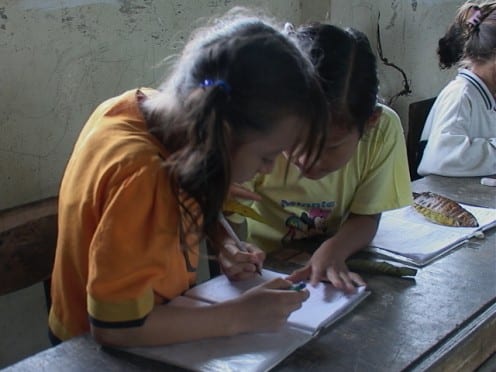A methodological case of comparative anthropology
By Juliano Andrade Spyer, on 8 June 2015
I hear from colleagues in our department that completing a PhD can often be a solitary experience. Anthropologists tend to accept the fact that social lives are so particular and rich that comparison becomes a dangerous affair. Doctorate students typically have such specific topics of research (such as boredom in rural Romania or wrestling in Bolivia) that it is hard to attract a general interest and they often have to rely on favours from peers to get feedback on their work.
By contrast the research team involved in our study of social media did not experience such academic loneliness. This post summarises the methodology we used to study the impact of social media on our nine field sites around the world. It also shows a possible alternative way of conducting anthropological research that benefits from regular and ongoing feedback and comparison between researchers collecting similar material from very different field sites.
Two broader choices led our team to come to four main decisions regarding how to conduct our qualitative comparative research.
The broad choices were:
- All the researchers worked on the same topic. In our case, the impact of social media in each field site.
- However, the actual research maintained the importance of long term participant observation. Each researcher immersed themselves in the social life of their field site, where they lived for 15 months.
The consequences of these guiding principles then became the following practices:
- During the preparation of each one’s project proposals, we read and discussed collectively the literature about social media. We incorporated the results in the individual projects that included a literature review of specific aspects for each field site.
- During the preparation, we also scheduled common themes (e.g. politics, gender) for the reports we agreed to write during each month of fieldwork and a survey questionnaire to be applied collectively during the same period.
- We read each other’s reports throughout fieldwork. Since returning from the field we have continued to read each others’ book chapters. Each person receives detailed feedback from at least one other colleague (though often several).
- These readings then provide the context for monthly meetings: initially through video conferencing, but now in person.
In our case, social media was the link to very different realities and places. It gave us a shared point of departure in terms of bibliography and of research questions. But anthropology also enhanced collaboration as our impressions from the field often arrived framed in terms of gender relations, politics, kinship, etc.
The result of this routine will be eleven books to be launched during 2016. Two will be comparative and the other nine will be monographs that are interconnected both by this practice of collaboration and by a common structure – each book will have the same chapter themes but are based on each particular ethnography.
Though many assume that giving our time to others’ work means less time and especially less attention to our own work, the collaboration in this project taught us the opposite. Often, seeing what the others were doing and thinking helped us to individually experience particular aspects of each field sites, in addition to deepening our engagement with our own.
Nell, our researcher in Chile, summed this up rather well in a recent conversation, when she remarked: “Reading the other chapters is sometimes even better than getting comments on my own chapter. Those are constructive, but reading the other chapters gives me creative inspiration. And it makes me realize important things I’ve left out.”
11 Responses to “A methodological case of comparative anthropology”
- 1
-
2
raymondjune wrote on 9 June 2015:
Useful summary of research methods used by @UCLSocNet team to study impact of social media in 9 global field sites http://t.co/Hgz0bRbQT2
- 3
-
4
jasper wrote on 9 June 2015:
This is my new blog post and it’s on the advantages of actually comparative anthropology. http://t.co/Da7aIQvo3d
-
5
JohnPostill wrote on 9 June 2015:
A methodological case of comparative #anthropology http://t.co/22QsbnnkCE #ethnography #methodology #socialmedia
-
6
BSPO1348 wrote on 9 June 2015:
RT @JohnPostill: A methodological case of comparative #anthropology http://t.co/22QsbnnkCE #ethnography #methodology #socialmedia
- 7
-
8
jasper wrote on 9 June 2015:
Meu post mais recente, sobre o método para e as vantagens de se fazer pesquisa comparativa na antropologia http://t.co/us29VekD9G
-
9
BerghahnAnthro wrote on 11 June 2015:
A methodological case of comparative anthropology http://t.co/Fl2nOVoNcQ via @UCLSocNet
-
10
JohnNisbet7 wrote on 11 June 2015:
RT @BerghahnAnthro: A methodological case of comparative anthropology http://t.co/Fl2nOVoNcQ via @UCLSocNet
-
11
dme_project wrote on 11 June 2015:
RT @BerghahnAnthro: A methodological case of comparative anthropology http://t.co/Fl2nOVoNcQ via @UCLSocNet
 Close
Close






RT @UCLSocNet: A methodological case of comparative anthropology http://t.co/LyYIPGgB01